When you're comparing window materials, costs vary greatly. Vinyl windows range from $250 to $950, while fiberglass runs between $500 and $1,500. Composite options cost about $700 to $1,200, whereas aluminum windows are budget-friendly, at $400 to $900. Wood windows fall between $750 and $1,250, offering aesthetic appeal but requiring more maintenance. Each material has distinct energy efficiency and lifespan characteristics that you'll want to take into account. Knowing these details can help you choose the right fit for your needs, and there's a lot more information to uncover about these options.
Key Takeaways
- Vinyl windows are cost-effective at $250 – $950, offering low maintenance and up to 15% energy savings on heating/cooling bills.
- Fiberglass windows range from $500 – $1,500, providing exceptional insulation and durability with a lifespan exceeding 30 years.
- Composite windows cost between $700 – $1,200, combining excellent thermal insulation with a wood-like appearance and minimal maintenance.
- Aluminum windows are budget-friendly at $400 – $900 but suffer from poor insulation, which may increase energy costs by 8-10%.
Overview of Window Material Costs
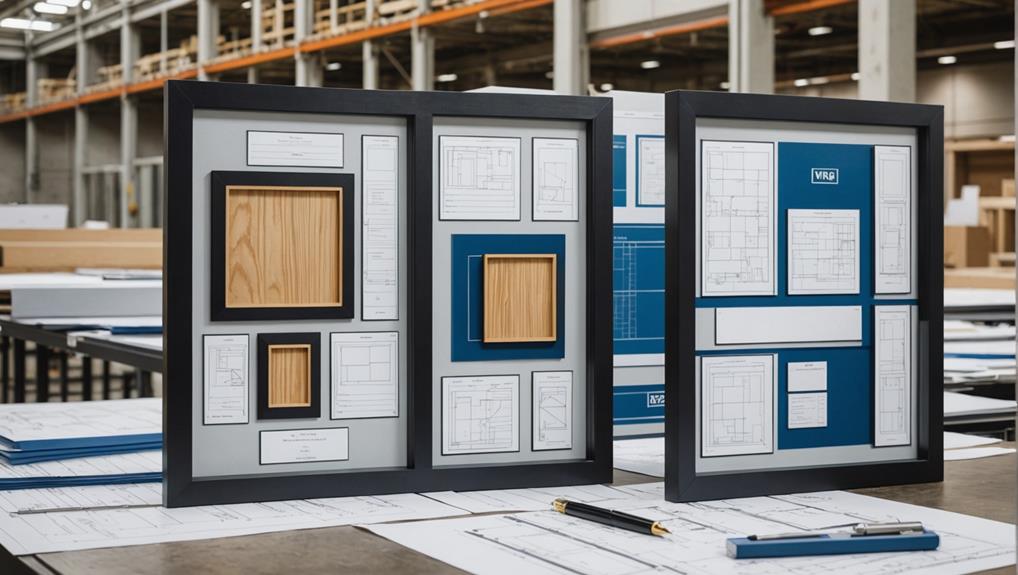
When you're considering window materials, it's essential to understand the varying costs and benefits associated with each type.
You've got several window material options, each with its own price range and characteristics.
Vinyl windows stand out as a budget-friendly choice, typically costing between $250 and $950, plus installation fees of $300 to $400. They offer low maintenance and decent energy efficiency.
If you're looking for durability, fiberglass windows might be appealing, ranging from $500 to $1,500. They provide superior insulation but come at a higher price.
Composite windows, blending aesthetics and durability, average between $700 and $1,200, with premium options starting at $1,250 before installation.
On the more affordable side, aluminum windows are generally the least expensive upfront. However, they might lead to higher energy bills due to poor insulation.
Finally, wood windows offer aesthetic appeal and customization but range from $750 to $1,250 and require regular maintenance to maintain their energy efficiency.
Vinyl Window Costs
Vinyl windows offer an attractive option for homeowners seeking cost-effective solutions, typically priced between $250 and $950, plus installation fees of $300 to $400. Their strong insulation properties can deliver energy savings of up to 15% on heating and cooling bills, making them a smart investment for your home.
Durability is another strong point; with proper maintenance, vinyl windows can last over 20 years. They require minimal upkeep, as they're fire-resistant and come in various colors and styles without the need for painting. This makes them an affordable option for homeowners who want long-lasting performance without the hassle.
While vinyl windows may have limited customization compared to other materials, their overall window costs remain competitive. Installation is straightforward, and the reduced need for maintenance means you can enjoy your windows without constant worry.
Aluminum Window Costs
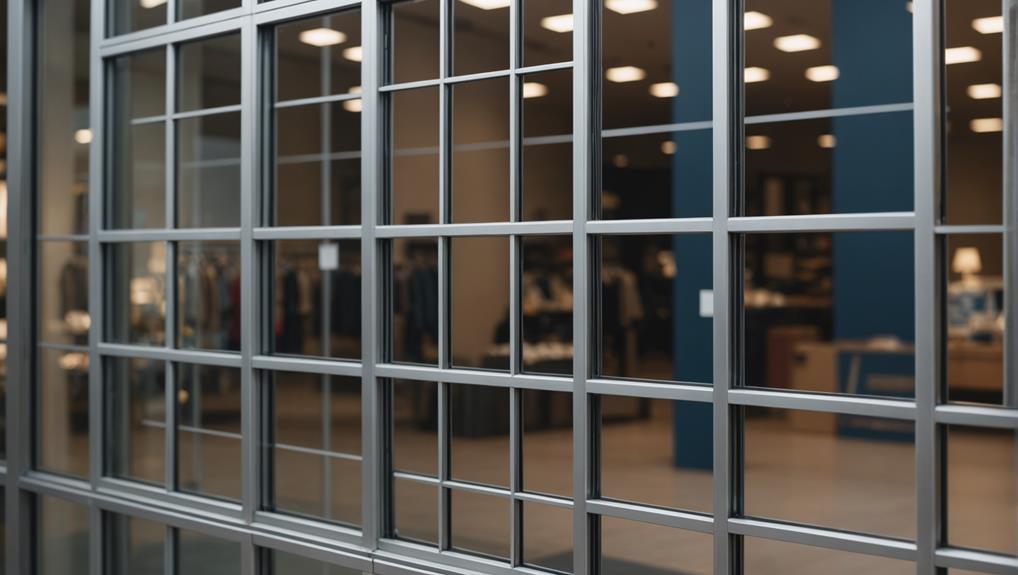
Aluminum windows offer a budget-friendly option, typically costing between $400 and $900, but their energy efficiency may lead to higher long-term expenses. Due to their poor insulation properties, you might face increased energy expenses, raising your bills by 8-10% annually.
Here's a quick comparison of aluminum windows' characteristics:
| Feature | Details |
|---|---|
| Cost | $400 – $900 |
| Lifespan | 20-25 years |
| Thermal Conductivity | High (less energy-efficient) |
| Maintenance | Low (prevent corrosion) |
| Aesthetic Preferences | Subtle, may not fit all styles |
While aluminum windows are lightweight and require minimal maintenance, their thermal conductivity makes them less suitable for extreme weather. They perform best in temperate climates, where their durability shines. However, consider your aesthetic preferences, as they may not suit every home design. Ultimately, while the initial cost is appealing, weigh the potential energy expenses against the benefits to see if aluminum windows are the right choice for you.
Wood Window Costs
Wood windows typically cost between $750 and $1,250, offering a balance of aesthetic appeal and energy efficiency for homeowners. While these windows are visually stunning and provide excellent insulation properties, the costs can vary based on customization options. If you're considering wood windows, keep these factors in mind:
- Average Lifespan: Expect wood windows to last around 30 years with proper care.
- Annual Maintenance: You'll need to commit to yearly upkeep to prevent rot and maintain their energy efficiency.
- Design Flexibility: Wood windows are highly customizable in color, grain, and style, allowing you to tailor them to your home's aesthetic.
While the standard pricing for double-hung wood windows ranges from $650 to $1,050, adding unique features can considerably increase the overall cost.
Remember, investing in wood windows enhances not only the look of your home but also its energy efficiency when maintained properly.
With their beautiful design and insulation properties, wood windows remain a popular choice for homeowners seeking both form and function.
Fiberglass Window Costs
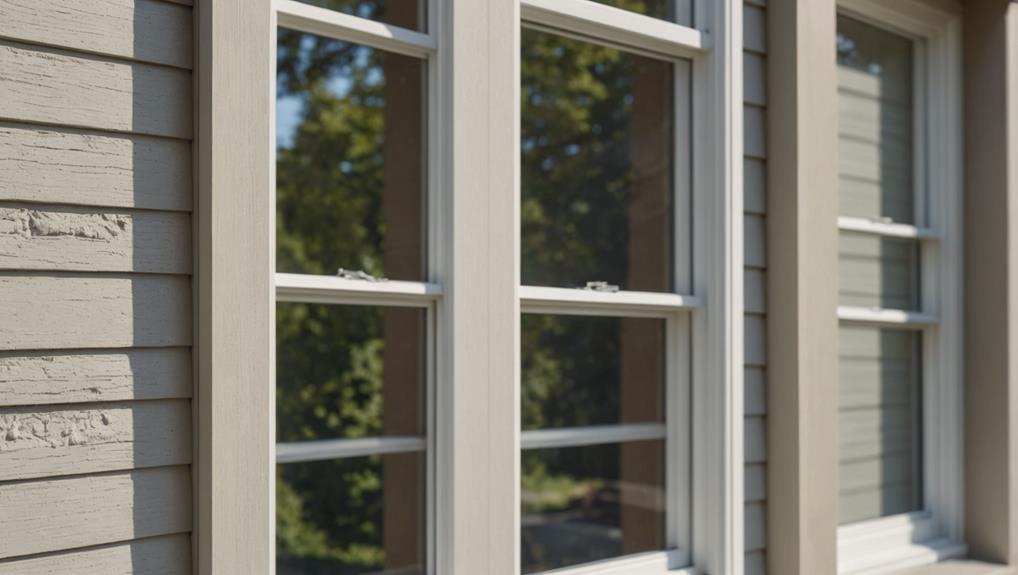
When considering window options, fiberglass windows typically range from $500 to $1,500, providing a durable and energy-efficient choice for homeowners.
These fiberglass window frames are designed to withstand extreme climates, offering impressive heat resistance and exceptional insulation properties. This means you can enjoy significant energy savings on your heating and cooling bills over time.
While the upfront cost may be higher than some other window materials, the long-term benefits often outweigh this initial investment. Fiberglass windows have a lifespan that can exceed 30 years with proper care, making them a wise choice for those looking to minimize future replacements.
Another advantage is their low maintenance requirement compared to wood windows. You won't have to worry about painting or frequent repairs, allowing you to focus on enjoying your home.
Composite Window Costs
How do composite windows stack up regarding cost and benefits for homeowners? When considering this window material, you'll find that composite windows offer a unique blend of advantages. Here's a quick rundown of what to expect:
- Cost Range: Composite windows typically range from $700 to $1,200, with premium options starting at $1,250 before installation costs.
- Lifespan: With proper care, these windows can last 35 to 40+ years, making them a worthwhile long-term investment.
- Energy Efficiency: They provide excellent thermal insulation, comparable to fiberglass and vinyl, which can help reduce your energy bills over time.
In addition to the cost and durability, composite windows have minimal maintenance requirements, leading to potential savings down the line.
They also boast an aesthetic appeal, combining durability with a wood-like appearance that many homeowners love.
While the upfront costs might be higher than other materials, the long lifespan and energy efficiency make composite windows a smart choice for your home.
With the right installation, you're investing in both comfort and style.
Cost Comparison Summary
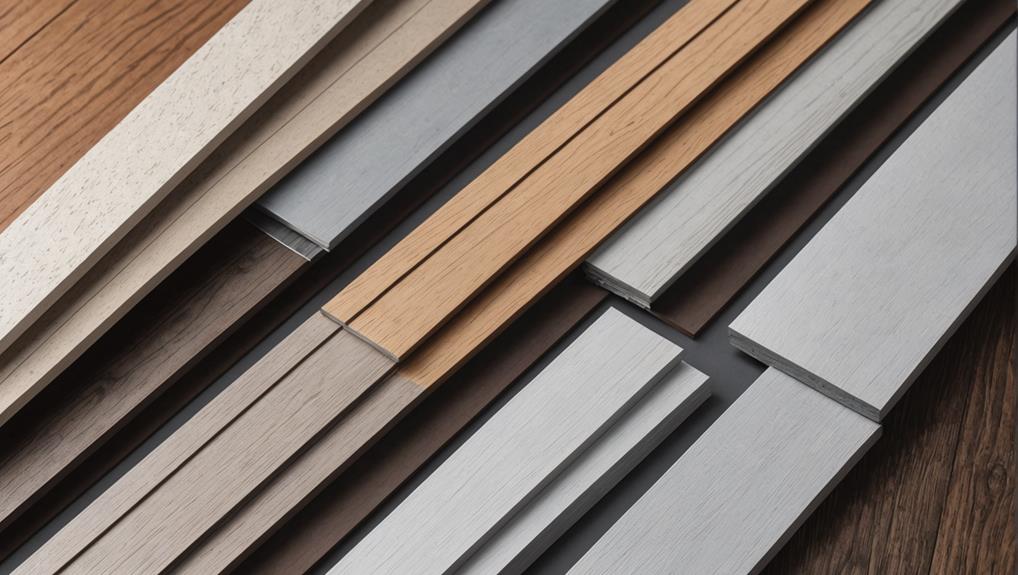
Comparing window materials reveals a range of costs and benefits that can greatly impact your decision as a homeowner.
Vinyl windows are one of the most economical options, costing between $250 and $950. They offer excellent energy efficiency and require low maintenance, making them a strong contender.
Fiberglass windows fall in the mid-range, with costs between $500 and $1,500. They provide durability and superior insulation but come at a higher price.
Composite windows, blending the beauty of wood with fiberglass's durability, typically range from $700 to $1,200, with premium options starting around $1,250.
Aluminum windows are generally cheaper upfront, averaging $400 to $900, but their poor insulation can lead to higher energy bills over time.
Wood windows, priced between $750 and $1,250, offer aesthetic appeal and customization but require regular maintenance to maintain energy efficiency and longevity.
To summarize, each of these window materials has unique costs and benefits. By considering your budget and maintenance preferences, you can identify the best options for your home while ensuring energy efficiency and long-term satisfaction.

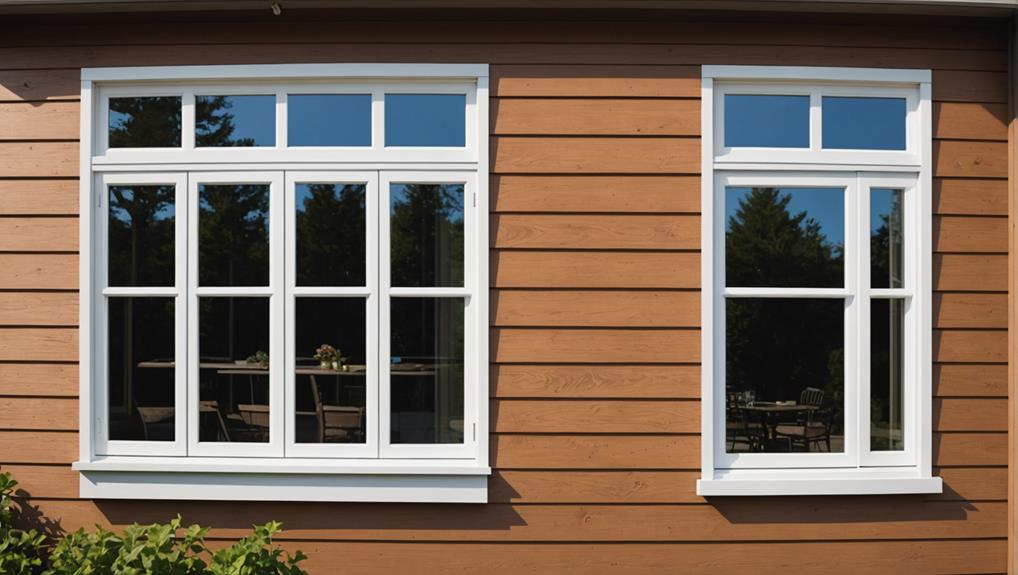
Leave a Reply